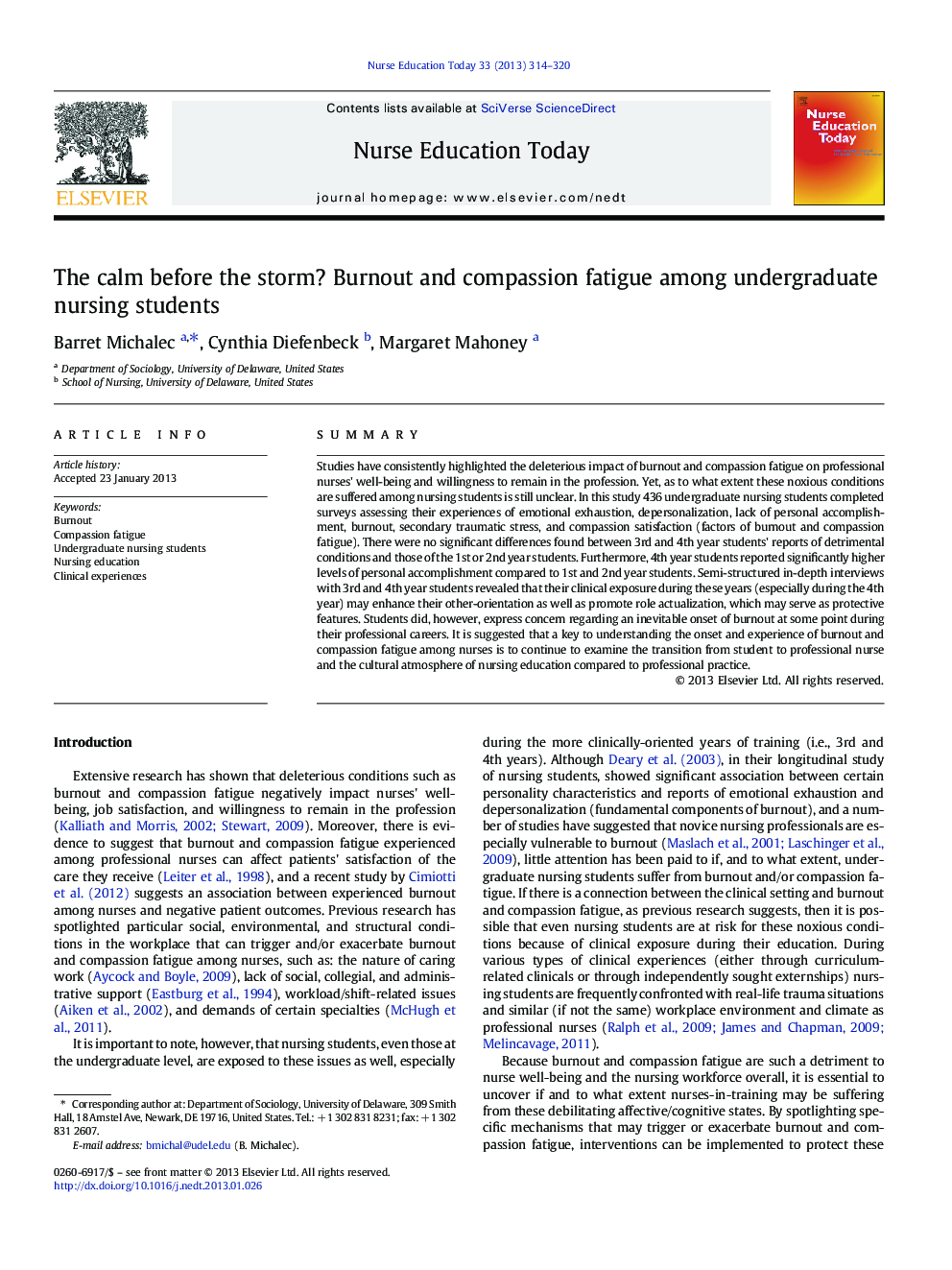| Article ID | Journal | Published Year | Pages | File Type |
|---|---|---|---|---|
| 368526 | Nurse Education Today | 2013 | 7 Pages |
SummaryStudies have consistently highlighted the deleterious impact of burnout and compassion fatigue on professional nurses' well-being and willingness to remain in the profession. Yet, as to what extent these noxious conditions are suffered among nursing students is still unclear. In this study 436 undergraduate nursing students completed surveys assessing their experiences of emotional exhaustion, depersonalization, lack of personal accomplishment, burnout, secondary traumatic stress, and compassion satisfaction (factors of burnout and compassion fatigue). There were no significant differences found between 3rd and 4th year students' reports of detrimental conditions and those of the 1st or 2nd year students. Furthermore, 4th year students reported significantly higher levels of personal accomplishment compared to 1st and 2nd year students. Semi-structured in-depth interviews with 3rd and 4th year students revealed that their clinical exposure during these years (especially during the 4th year) may enhance their other-orientation as well as promote role actualization, which may serve as protective features. Students did, however, express concern regarding an inevitable onset of burnout at some point during their professional careers. It is suggested that a key to understanding the onset and experience of burnout and compassion fatigue among nurses is to continue to examine the transition from student to professional nurse and the cultural atmosphere of nursing education compared to professional practice.
